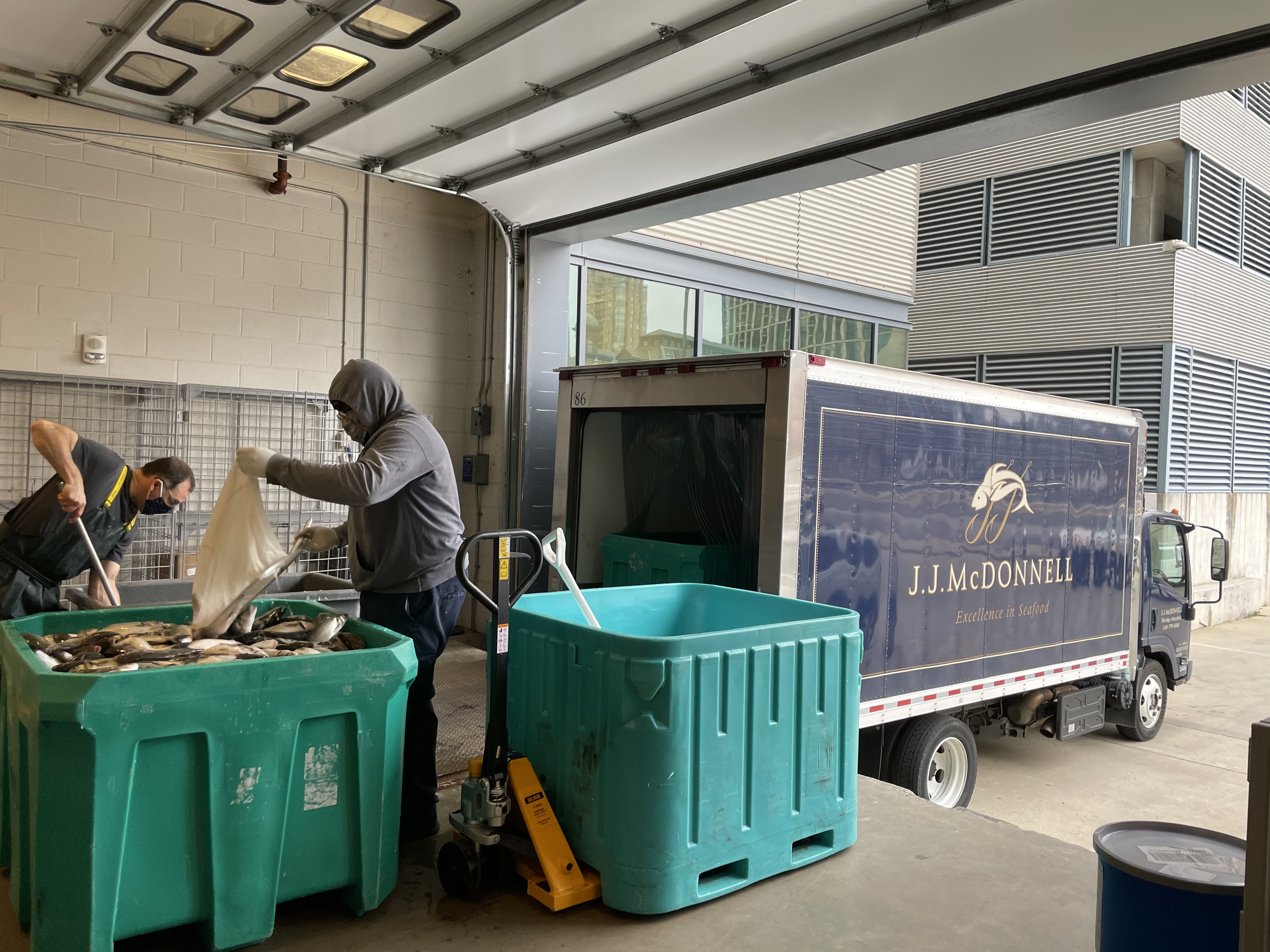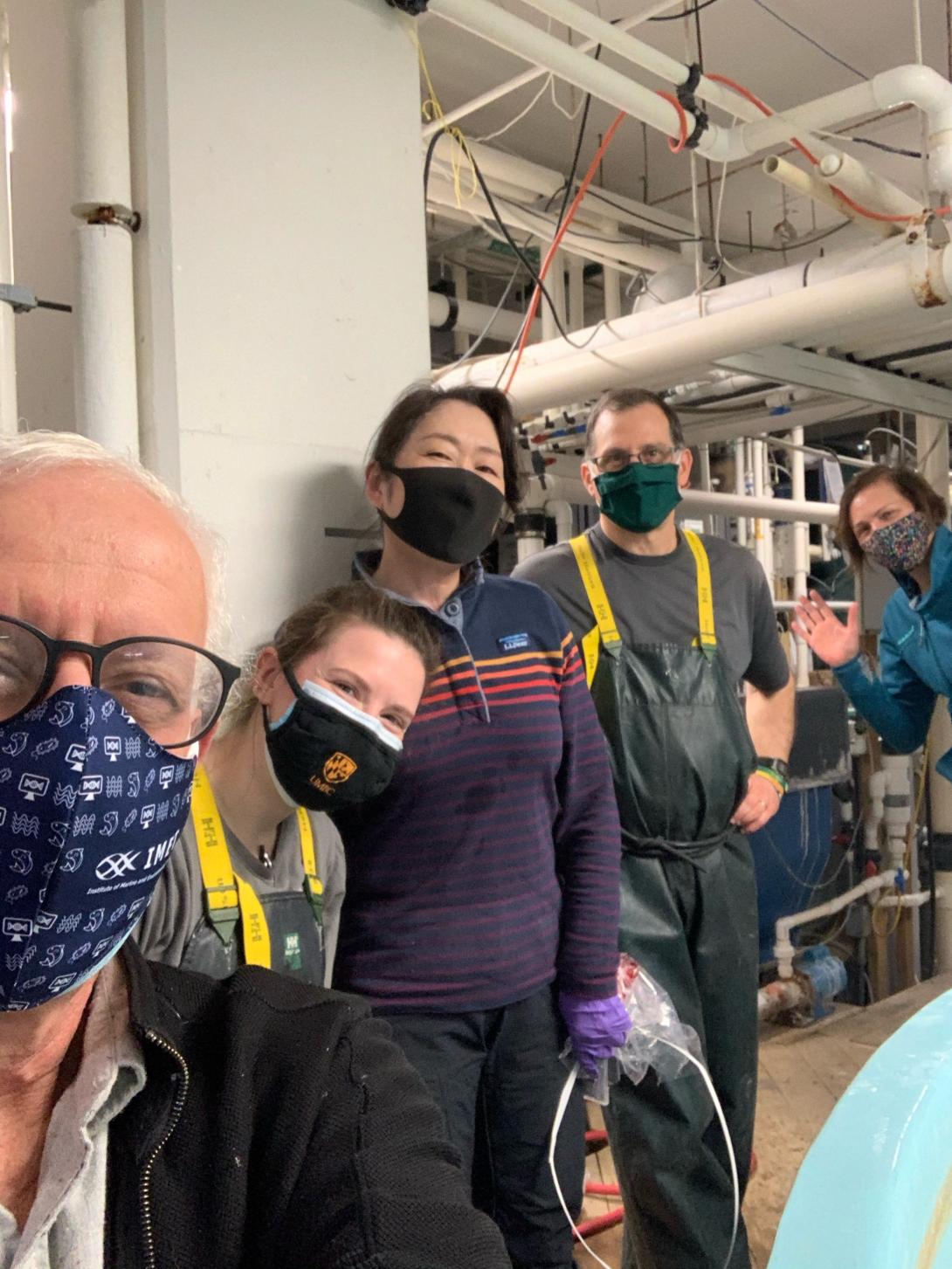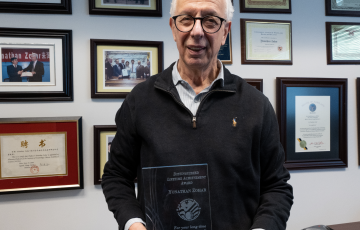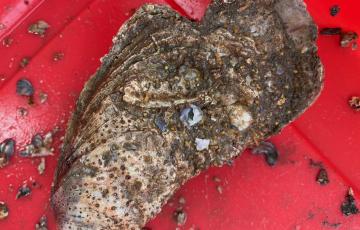From Tank to Table with IMET and United Way

For the third year, fish from Aquaculture Research Center at the Institute of Marine and Environmental Technology (IMET) were donated to feed those in need in Baltimore. In January 2021, 4200 pounds of European Seabass were filleted and vacuum packed to be distributed to our neighbors in the community. In a unique partnership between IMET, United Way of Central Maryland, JJ McDonnell, and McCormick’s Flavor for Life, the “Feeding Individuals to Support Health,” or FISH Project, supports sustainable aquaculture research, food access, and healthy eating habits. Since starting in 2017, the FISH project has provided 23,600 meals to Baltimore area residents.

The lead scientist for this project is Dr. Keiko Saito, whose research focuses on recirculating aquaculture systems (RAS) like the one found at IMET. As she has grown fish for the FISH Project over the past three years, she has improved processes for efficiency and sustainability. “Our goal is always to improve our operation and with the FISH project we get to feed those in need at the same time. It’s a great partnership,” she said. In a RAS system, water is continually recycled and farmed fish are kept separate from wild populations. This has environmental benefits and could one day enable people in landlocked places to grow fresh fish close to home.
Another benefit of IMET’s aquaculture system is that fish are kept separate from contaminants present in our coastal waters and oceans. The FISH Project has enabled Dr. Saito to test fish grown at IMET for heavy metals like mercury and arsenic. Fish raised in IMET’s facility that were fed commercial feed had about one-fifth the amount of mercury and about half the amount of arsenic found in fish raised in open net-pen aquaculture. Fish raised at IMET that received a special feed developed at IMET had no detectable levels of these heavy metals. This means that these fish are even healthier for the recipients than what they could find in most stores.

Health is the overarching goal of the FISH Project: IMET protects a healthy environment by developing sustainable aquaculture practices; JJ McDonnell makes it easy for people to prepare a healthy entree by filleting whole fish; United Way helps ensure access to high quality food for those in need; and McCormick’s Flavor for Life program helps individuals create healthy (and tasty!) meals in their kitchens.
Judy Poey, Health Program Officer at the United Way of Central Maryland, said, “Complex challenges, like providing healthy food for people who can’t afford it or who live in ‘food deserts,’ require multifaceted solutions. The FISH Project is a powerful example of a meaningful partnership that breaks down barriers to improve the health of our community.” Dr. Russell Hill, Executive Director of IMET, said, “At IMET, we’re committed to scientific research that can be applied to some of the world’s biggest challenges. With the FISH project, we were proud to serve those in need today, while conducting research needed to feed future populations.”
If all this has you salivating for a taste of healthy, lean European Seabass, Dr. Saito has a suggestion: “Pan fry it and put a tomato salsa on top. You can just add salt and pepper and bake.” You can follow McCormick’s suggestions in this video.

